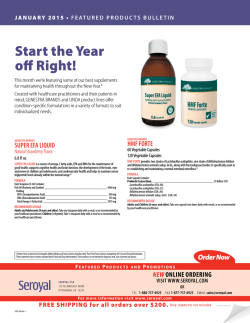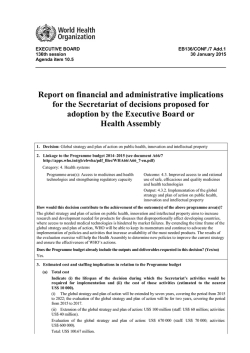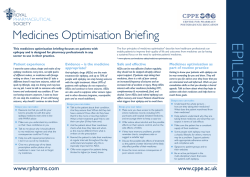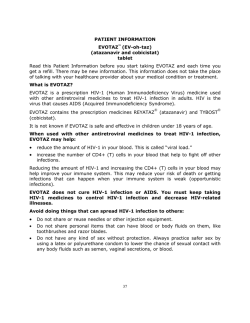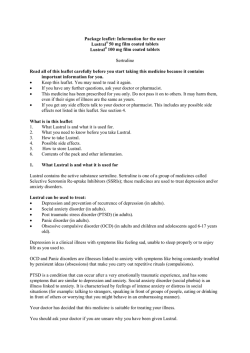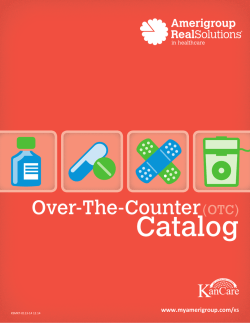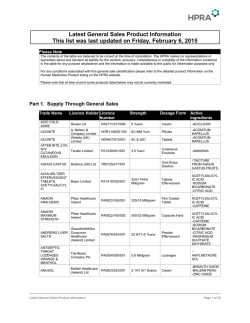
Reclassification of Nexium Control 20mg Gastro
Public Assessment Report Pharmacy to General Sales List Reclassification Nexium Control 20mg Gastro-Resistant Tablets (Esomeprazole) EMA Agency number: EMEA/H/C/002618 Pfizer Consumer Healthcare Ltd TABLE OF CONTENTS Introduction Page 1 Background Page 1 Proposed terms of reclassification Page 2 General Sales List criterion Page 2 Assessment of Suitability for General Sales List availability Page 2 Advice from the Commission on Human Medicines Page 5 Consultation on GSL availability of esomeprazole Page 5 Responses to consultation ARM 88 Page 5 Conclusion Page 6 PAR Nexium Control 20mg Gastro-Resistant Tablets EMEA/H/C/002618 PUBLIC ASSESSMENT REPORT 1. Introduction Nexium Control 20mg Tablets is a medicine to be taken by mouth for the short term (up to 14 days) treatment of reflux symptoms (e.g. heartburn and acid regurgitation) in adults. The active ingredient in the product is esomeprazole; it is in the class of drugs known as proton pump inhibitors which reduce the production of acid in the stomach. The Licence holder Pfizer Consumer Healthcare applied to make this product available as a General Sales List medicine (GSL) for sale through general retail outlets. The Medicines and Healthcare products Regulatory Agency (MHRA) considers this product is safe enough to be sold on general sale. This report outlines the evidence that the MHRA reviewed which led to the decision to approve the application. 2. Background Nexium 20mg Tablets containing esomeprazole was first authorised to the company AstraZeneca as a Prescription Only Medicine in 2000. Esomeprazole is a proton pump inhibitor (PPI) which inhibits the production of gastric acid. It is used to treat acid-related conditions such as gastric and duodenal ulcers, Zollinger-Ellison syndrome, and gastro-oesophageal reflux disease (GORD). In August 2013 Nexium Control 20mg Gastro-resistant Tablets was authorised as a non-prescription medicine by the European Medicines Agency via an EU wide reclassification procedure. A copy of the European Public Assessment Report (EPAR) is available from www.ema.europa.eu. Nexium Control 20mg Gastro-resistant Tablets is authorised for the short-term treatment of reflux symptoms (e.g. heartburn and acid regurgitation) in adults, and is available as a non-prescription medicine in packs of 7 and 14 tablets. In the UK the product was considered to be authorised to be sold as a Pharmacy only (P) medicine. Pfizer Consumer Healthcare has taken over the Marketing Authorisation from AstraZeneca and submitted an application for GSL status for Nexium Control 20mg Tablets in the UK. As this medicine is authorised across all EU member states as a non-prescription medicine, in some countries Nexium Control is already available on self-selection without pharmacist supervision. This is the first application for General Sales List availability for this product in the UK. 2.1 Treatment of gastro-oesophageal reflux disease Gastro-oesophageal reflux disease (GORD) is defined as a condition that develops when the reflux of stomach contents causes troublesome symptoms and/or complications. Heartburn and acid regurgitation are typical symptoms associated with GORD and the most common complication is reflux esophagitis. For many patients, acid regurgitation and heartburn can severely affect quality of life for example nighttime heartburn may cause sleeping difficulties and impair next-day function. Effective treatment of the symptoms by inhibiting acid secretion helps to improve quality of life. Most patients prefer self-medication for the initial treatment of heartburn symptoms and only consult a doctor if the symptoms persist. Non-prescription medicines for self-treatment of heartburn and/or acid regurgitation include antacids, histamine-2-receptor antagonists (H2-RAs) and proton pump inhibitors (PPIs). Antacids and H2-RAs have a rapid onset of action, with the effect lasting longer with H2-RA therapy than with antacids. Whilst the onset of action with PPIs is not rapid, the effects last significantly longer. The combined data from a number of independent studies found that PPIs were the most effective therapy when compared with antacids and H2-RAs. Recent clinical guidelines recommend 1 PAR Nexium Control 20mg Gastro-Resistant Tablets EMEA/H/C/002618 treatment with PPIs as initial therapy for patients with symptoms impacting on their quality of life, while H2-RAs are recommended for patients whose symptoms are mild or infrequent. 2.2 Legal Status of esomeprazole and omeprazole Esomeprazole is the S-isomer of omeprazole. The two ingredients are closely related chemically and converted in the body to the same active substance. Because of this, they demonstrate very similar efficacy and safety profiles in clinical use. Whilst esomeprazole has recently been authorised for non-prescription availability throughout the EU, omeprazole has been authorised as a Pharmacy (P) medicine in the UK for over 10 years. Other PPIs including pantoprazole, lansoprazole and rabeprazole are also Pharmacy medicines in the UK. 2.3 Legal status of other heartburn treatments Other types of product are available GSL in the UK for the treatment of symptoms arising from excess gastric acid. These include: antacids (which neutralise acid); alginates (which form a mechanical barrier on the surface of the stomach contents, and thus reduce reflux) and the histamine-2-receptor antagonists (H2-RAs) ranitidine and famotidine (which inhibit acid secretion). 3. Proposed Terms of Reclassification The applicant proposed the following conditions for the GSL availability of Nexium Control. These terms are the same as those authorised for the EU non-prescription product, which is currently a P medicine in the UK. • • • • • • • • tablets for oral use adults aged 18 years and over maximum strength 20mg treatment of reflux symptoms (e.g. heartburn, acid regurgitation) maximum dose 20mg maximum daily dose 20mg maximum duration of treatment should not exceed 2 weeks without consulting a doctor maximum pack size 14 tablets. 4. General Sales List criterion Under the provisions of The Human Medicines Regulations 2012, regulation 62(5), General Sales List is appropriate for medicines which can, with reasonable safety, be sold or supplied by someone other than a pharmacist. The term “with reasonable safety” has been defined as: “where the hazard to health, the risk of misuse, or the need to take special precautions in handling is small and where wider sale would be a convenience to the purchaser." 5. Assessment of suitability for General Sales List availability The MHRA assessed the application against the General Sales List criterion, stated in Section 4. 5.1 Hazard to health 5.1.1 Safety Profile Nexium (esomeprazole) has been marketed as a POM medicine since 2002. The safety and tolerability of esomeprazole is well-established and is supported by post-marketing experience from approximately 80 million patient-years of oral esomeprazole treatment as of 31 December 2012. The majority of adverse events are mild and transient in nature. The most commonly reported adverse events were drug dose omission, drug ineffective, diarrhoea, headache, gastro-oesophageal reflux disease, nausea, abdominal (tummy) pain, dyspepsia (indigestion) and malaise (general discomfort). In the reports of drug dose omission (that the patients do not take their medication regularly, e.g., due to cost) approximately one third of the patients also reported gastro-oesophageal reflux disease. Other commonly reported events in the reports of drug dose omission were dyspepsia, malaise, vomiting, abdominal (tummy) pain and drug ineffective. 2 PAR Nexium Control 20mg Gastro-Resistant Tablets EMEA/H/C/002618 The total UK exposure of esomeprazole until 31 December 2012 is estimated to be over 2.2 million person years. Between February 2000 and November 2013, there have been 521 reports detailing 1155 reactions recorded by the MHRA through the Yellow Card adverse drug reaction reporting scheme. Relative to the large number of patient exposures in the UK, the number of reported events for esomeprazole is low and the majority of these are mild, non-serious and self-limiting in nature. Overall, the safety profile of esomeprazole is considered acceptable for GSL availability. The applicant also provided supportive data on the safety and usage of the closely related active ingredient omeprazole which has been available in the United States as a non-prescription or over-thecounter (OTC) medicine on self-selection in general retail outlets since 2003. The data show that there was no significant difference between the safety profiles of esomeprazole or omeprazole, either when prescribed or when sold as an OTC medicine. A study of OTC omeprazole use in the US showed that patients used the product correctly and complied with the directions for use as outlined on the label and in the patient information leaflet; this supports the safety of omeprazole in general sales circumstances. As esomeprazole is so closely related to omeprazole, the above information provides additional reassurance of the favourable benefit to risk of Nexium control as a GSL medicine. 5.1.2 Drug Interactions Clinically important interactions of esomeprazole with commonly used medicines are considered rare. To minimise the risk, the outer carton states “Talk to your pharmacist or doctor if you are taking any medicines listed in the package leaflet”. Those patients on chronic medication should therefore be directed to the Patient Information Leaflet (PIL) to ensure they take the product appropriately. The company has presented an in depth analysis of the interaction profile for both esomeprazole and OTC omeprazole focusing on important identified interactions with the following 8 medicines: warfarin, phenytoin, atazanavir, nelfinavir, digoxin, methotrexate, tacrolimus, and clopidogrel. The evidence indicates that for the above medicines there is a low potential for interactions with esomeprazole and the likelihood for clinically significant effects is minimal. It is considered that the interaction profile is acceptable for GSL availability of the product which is intended for a short duration of use and in a small pack. 5.1.3 Special Populations The product is not intended for use during pregnancy and lactation or in children and adolescents under 18 years. Accidental or unintended use by these groups however, has not been associated with any identified concerns and represents an acceptably low risk. There is sufficient information in the packaging and patient leaflet, without the need for pharmacist intervention, to alert people not to use the product either during pregnancy and lactation or in those under 18 years. 5.2 Risk of misuse 5.2.1 Misdiagnosis Heartburn due to acid reflux is a common symptom and has been self-diagnosed and treated for many years. A choice of medicines has been available for many years as both P and GSL to relieve these symptoms. Pharmacists have successfully been recommending PPI products (such as omeprazole and pantoprazole) for several years without apparent problems. A potential risk may occur when a self-medication product is used inadvertently to treat a more serious underlying condition that needs medical attention. Diseases that may include symptoms of heartburn and acid regurgitation are: • Peptic ulcer • Barrett’s oesophagus 3 PAR Nexium Control 20mg Gastro-Resistant Tablets • EMEA/H/C/002618 Malignant oesophageal or gastric disorders. These conditions are usually associated with other symptoms which would alert a patient to see their doctor. The labelling and user tested PIL advise patients that if symptoms worsen or do not improve after 14 days of use then the doctor should be contacted. Furthermore, the PIL includes advice not to start or continue self-medication if the following alarm symptoms are present or occur during treatment and to consult a doctor: • Loss a lot of weight for no reason • Problems or pain when swallowing • Stomach pain or signs of indigestion such as nausea, fullness, bloating especially after food intake • Vomiting food or blood, which may appear as dark coffee grounds in your vomit • Passing black stools (blood-stained faeces) • Severe or persistent diarrhoea; esomeprazole has been associated with a small increased risk of infectious diarrhoea. Such alarm symptoms and lack of treatment effect, are easily recognisable by patients who can take suitable action without the need for pharmacist intervention. The risk of missing an underlying more serious condition is no greater for esomeprazole than with any other treatment for heartburn currently available. As treatment of heartburn symptoms is generally treated with a GSL product (95% of the sales volume falling into this category) there is no greater risk with taking Nexium Control than taking any other currently available GSL medicine for this condition on the market. Pharmacist intervention would not be available in these circumstances whichever product was chosen. 5.2.2 Misuse The risk of intentional/unintentional over dose or prolonged treatment is considered to be low. To address the risk of known or unknown incorrect use, the applicant provided data from OTC use of omeprazole in the US which demonstrate that reports of incorrect use are rare. Considering the similarity between omeprazole and esomeprazole and known safety profile of esomeprazole, it can be concluded that the risk of incorrect use of the latter as a GSL medicine is considered minimal. To ensure correct use without pharmacist intervention, there are clear directions about dosing and treatment duration in the outer carton and patient leaflet which are further supported by the package size. These measures are considered satisfactory for GSL availability of Nexium Control. 5.3 Special Precautions in Handling There are no special precautions required in handling Nexium Control. 5.4 Wider sale would be a convenience Heartburn is a well-established GSL indication within the UK environment. Currently, 95% of the upper GI category (unit sales) in the UK is supplied via General Sale (antacids, alginates H2-RAs). Introduction of a PPI in the GSL category would enable access to this medicine for those for whom currently available GSL indigestion remedies do not provide complete relief. Consumers generally expect to buy indigestion remedies on self-selection in a general retail outlet and are used to doing so. By enabling a new class of medicine on general sale it will allow those whose symptoms are not adequately relieved to have wider access and more choice to effectively treat their symptoms and improve their quality of life. 5.5 Risk Management Plan A comprehensive risk management plan was approved during the Centralised Procedure. The plan outlines how important identified risks and potential risks will be prevented or minimised. 4 PAR Nexium Control 20mg Gastro-Resistant Tablets EMEA/H/C/002618 Routine pharmacovigilance measures are considered sufficient to address the identified and potential risks. In particular, safety information will continue to be collected and presented to the Health Authorities in accordance with the regulations. The identified risks will be managed via routine measures, such as the clear advice in the product information on how to use the product safely and correctly. No additional measures, such as consultation with a pharmacist, are considered necessary for the safe and correct use of nonprescription Nexium Control if sold as a GSL product. 6. Advice from the Commission on Human Medicines The Commission on Human Medicines advised in favour of GSL availability of Nexium Control 20mg Gastro-resistant Tablets in the treatment of reflux symptoms (e.g. heartburn, acid regurgitation) with a maximum pack size of 14 tablets and a maximum duration of treatment not exceeding 2 weeks without consulting a doctor. 7. Consultation on GSL availability of esomeprazole Consultation ARM 88 proposing General Sale availability of Nexium Control was issued on 2 July 2014, with a deadline for comments of 23 July 2014. A copy of the consultation document is available on the MHRA website. 8. Responses to consultation ARM 88 There were 11 responses of which 2 were in favour 4 raised issues but gave no definitive view and 4 did not support reclassification. The individual responses are available alongside this report, apart from two which were submitted in confidence. Overall, no new issues of concern have been raised in relation to GSL availability of esomeprazole as the responses reflect concerns which had previously been considered and addressed by CHM when giving their advice in favour of GSL supply. CHM considered that patients would be able to manage short term treatment with a Nexium Control as a GSL product. They were reassured by the information in the label and leaflet to seek advice from a pharmacist if the symptoms persist or if more than one course of treatment is needed. The role of the pharmacist will be useful in these cases. Many of the concerns raised are associated with the long term use of the product and use in older patients; the product is clearly labelled for short term use and includes advice for those over 55 years and to seek suitable advice in circumstances where symptoms do not resolve. The product will be presented in a different style from other antacid products which highlight the fast action of the product; in this case, Nexium control does not make this claim and the label includes a statement that it may take 2-3 days for a full effect. The evidence is that the majority of patients can recognise their symptoms and have learnt to treat them accordingly. Ready availability of a PPI in a setting where they are accustomed to buying their antacid medicines may provide an avenue to a more effective treatment for their condition. The improved product information with this product includes advice in more than one position to consult a pharmacist or doctor for further information and advice. The availability of this product with comprehensive product information may help to encourage individuals with more persistent problems of heartburn to seek healthcare professional advice rather than continuing to self-medicate with other GSL products. The following is a summary of the key Issues raised. 8.1 Experience of use as a Pharmacy medicine Although to date, Nexium Control has not been available as a Pharmacy medicine, omeprazole 10mg has been available safely as P since 2004 and subsequently other PPIs as well; so patients have had an opportunity to gain experience of OTC use of closely related products. Esomeprazole is the S5 PAR Nexium Control 20mg Gastro-Resistant Tablets EMEA/H/C/002618 isomer of omeprazole. The two ingredients are closely related chemically and converted in the body to the same active substance. Because of this, no significant differences between the safety profiles of the two substances have been found. 8.2 Apparent difference in potency between esomeprazole and omeprazole Both active ingredients are metabolised to the same active molecule. Due to differing metabolic pathways, there is less interpatient variability and more efficient acid control with esomeprazole than omeprazole; patients experience a longer time (up to 20%) at clinically meaningful levels of acid control. The non-clinical section in the European Assessment includes reports that esomeprazole and omeprazole are toxicologically similar at equivalent systemic exposure. Similarly, CHM considered a comparison of the safety profiles of the two products and were reassured that there was no evidence for a concern that any perceived differences in the potency of esomeprazole adversely affect its safety in comparison to omeprazole. 8.3 Risk of Interactions The safety/ drug interaction profile of esomeprazole has been extensively studied and the risk of drug interactions is considered minimal. The label and leaflet include suitable advice to avoid taking the product with certain medicines. The CHM did not consider the risk of drug interactions to be a concern for the product under the proposed GSL circumstances for use. 8.4 Concerns in relation to potential Clostridium difficile infection There is a known risk that patients taking PPIs are more likely to suffer from C, difficile infection. The main risk factors for this infection are age, hospitalisation and antibiotic use; reports have been decreasing over the years. The risk of this problem in the patient population most likely to use this product is very low; nevertheless it is addressed in the leaflet which advises patients to tell their doctor immediately if they experience persistent diarrhoea as esomeprazole has been associated with a small increased risk of infectious diarrhoea. 8.5 Osteoporosis This condition may occur on long term use with PPIs but is not considered a concern for short term GSL use limited to 14 days maximum treatment period. Patients are advised to contact their doctor if their reflux symptoms are persistent or longstanding even after treatment. The leaflet also includes advice to talk to your doctor if you are aged over 55 years and need to take a non-prescription indigestion or heartburn treatment every day. 8.6 Lack of pharmacist intervention CHM were satisfied that the label would be suitable to help ensure that patients would be able to make an initial decision to treat and use the product safely without the need for professional input; also that patients would seek healthcare advice where necessary. 8.7 Correct choice of treatment The label and leaflet clearly differentiate Nexium control from other antacid products which have different label claims, for example about fast action. People are already managing this condition with a variety of medicines without input from a pharmacist. The evidence is that patients can recognise their symptoms and have learnt to treat them accordingly. Ready availability of a PPI in a setting where they are accustomed to buying their antacid medicines may provide, for some, a more effective treatment for their condition. 8.8 Lack of advice on lifestyle changes The leaflet includes information about lifestyle changes to help reduce the symptoms of heartburn and regurgitation: it also clearly recommends that patients should speak to their pharmacist if they need more information or advice. 9. Conclusion Assessment of the responses to consultation on the application for Nexium Control has revealed no new issues of concern in addition to those already considered by CHM and on which CHM were 6 PAR Nexium Control 20mg Gastro-Resistant Tablets EMEA/H/C/002618 reassured. In light of the advice from the Commission on Human Medicines the Licensing Authority has taken the decision to approve GSL legal status for Nexium Control. Medicines and Healthcare products Regulatory Agency January 2015 7
© Copyright 2026
